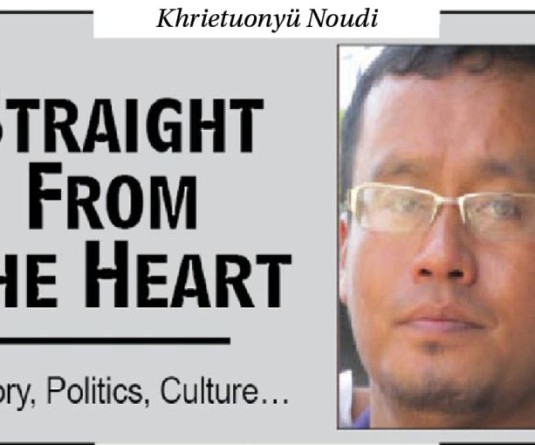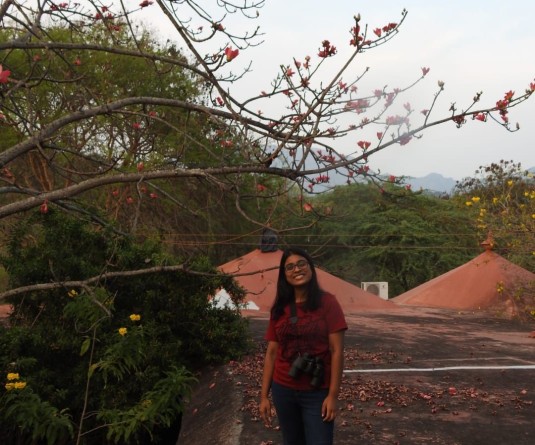
Dr Monalisa Tase and Dr Monojit Das
India’s evolving global position as a rising power necessitates a re-examination of the foreign policy architecture, particularly the Indian Foreign Service (IFS). While India’s foreign policy has witnessed significant transformation since independence, the structure of the IFS has largely retained the same structure since its inception. Given the increasing complexities of global diplomacy, the changing nature of international relations, and India’s expanding interests, there is a compelling need to reform the IFS to better serve the country’s global ambitions.
Historical Overview: A Legacy in Need of Reform
The IFS, was created post-independence on October 9, 1946, inherited its structure from the British Imperial Civil Service (ICS),model used during British colonial rule to address post-colonial issues such as nation-building, border security and forging new diplomatic relationships. At that time, India’s diplomatic challenges were limited, and the IFS, a small, elite cadre, was well-suited to manage these tasks
However, as India has grown into a major geopolitical player with global ambitions, the challenges and opportunities in diplomacy have multiplied exponentially. The IFS continues playing a vital role since beginning but, it now needs to adapt and expand further to effectively lead in today's multipolar and interconnected world. Despite India’s strategic importance in Asia and its growing economic cloutand ambitions for a permanent seat at theUN Security Council, the country still operates with one of the smallest diplomatic corps among major powers.
This gap between India’s global aspirations and its foreign service capabilities points to the need for structural reform in the IFS.
1. Expanding the Cadre Strength
Since the 1950s, when the global diplomatic landscape was relatively simpler, the size of the IFS has remained significantly small by global standards. It is well known that despite being the world’s most populous and one of the most geopolitically influential countries, India operates with a foreign service that is smaller than those of nations with much smaller economies and geopolitical reach.
In comparison, countries like the United States State Department and China have heavily invested in expanding their diplomatic networks over recent decade with experts knowing in depth about India and its culture.
To manage India’s increasing engagements with regions like Africa, Latin America, and the Indo-Pacific, a significant expansion of the IFS cadre is essential. The current cadre strength often limits India’s ability to adequately represent itself in key global forums including that of UN-IGF and other digital platforms which India now has to aim to achieve superiority given its vision of digital India additionally projecting its soft power, and protect its interests abroad. Expanding the diplomatic service would also allow for more specialized postings and greater regional expertise, critical in today’s interconnected world.The New, Emerging, and Strategic Technologies(NEST) Division raised in 2020, given their extensive initiatives in cyber diplomacy it must have a mandate to represent the voice in all such events happening in any recognized tech forums on all days.
2. Introducing Specialized Recruitment and Lateral Entry
India’s recruitment method for the IFS—through the UPSC Civil Services Examination is highly generalist in skill. While training is provided post-recruitment, the rapidly evolving global challenges require specialized knowledge in fields such as technology, economics, climate change diplomacy and a subject-matter expertise at the highest levels.
Countries like China and the US have adopted more specialized recruitment strategies, including lateral entry from academia, think tanks, and the private sector, to enable fresh perspectives and expertise into their diplomatic corps. India’s attempt to invite experts for lateral entry has received resistance to such initiatives, especially with regard to caste/reservation debates. However, the entry of specialists in fields like trade, cybersecurity, international law, and climate diplomacy in higher position must continue giving the need to address the growing complexities of global governance.
3. Strengthening Institutional Coordination
India’s foreign policy decision-making process has a history of been intensely centralized within the Ministry of External Affairs (MEA). While this was effective in the early decades post-independence, today’s world demands a more interdisciplinary approach to diplomacy. Economic diplomacy, strategic alliances, and technology partnerships require better coordination across ministries, including the Ministry of Commerce, Ministry of Defense, and National Security Council Secretariat (NSCS).
India should consider establishing a Foreign Policy Coordination Council, which would bring together key stakeholders from various ministries to ensure a more integrated approach to foreign policy. This could help streamline decision-making, ensure quicker responses to global challenges, and promote a whole-of-government approach to strategic issues.
4. Strengthening Strategic Communication
In an era of global connectivity and instant communication, India’s foreign policy narrative requires a robust strategic communication framework. Unlike countries like China, which has a dedicated United Front Work Department to manage its external narratives, India lacks an institutionalized communication strategy within its foreign policy apparatus. A professional diplomatic PR and strategic communication arm within the MEA could help project India’s soft power, shape global discourse, and counter misinformation effectively.
5. Decentralizing Diplomacy: Empowering States and Regional Engagement towards the liberty in undertaking cultural and trade exchanges
With India’s federal structure, there is growing potential for subnational diplomacy, where states play a more active role in foreign engagements. Several Indian states, like Gujarat, Tamil Nadu, and Maharashtra, already have strong international economic and cultural ties. Likewise, a dedicated promotion of North East Region (NER) through DONER by beginning with a pilot initiative sending NER experts to speak at global forums/ attached with embassies as part of giving a better view of NER culture across globe. India could empower its states to engage more actively in trade, tourism, and cultural diplomacy, thus enhancing India’s global footprint
6. Enhancing Training and Capacity Building
The IFS needs to ensure that its officers are well-equipped for 21st-century diplomacy by providing them with the necessary training in emerging domains such as artificial intelligence (AI), cyber diplomacy, space governance, and climate negotiations. Partnerships with global institutions and universities would allow Indian diplomats to stay ahead of the curve in dealing with contemporary challenges.
The Need for Change: Aligning Structure with Ambition
The IFS has served India’s foreign policy well, especially in its early decades of post-colonial diplomacy. However, with the emergence of India as a rising power with global responsibilities, the need of large-scale reform in the IFS structure is becoming increasingly visible. A diplomatic corps that was once sufficient for managing Cold War-era politics now struggles to keep up with the demands of a multipolar, digitalized world where diplomacy requires real-time engagement, innovation, and technical expertise.
The world is no longer defined by rigid West vs. East binaries but by multilateral engagements, transnational threats, and evolving regional dynamics. India’s foreign policy, to remain relevant and impactful, must be supported by an agile, well-trained, and adequately staffed IFS that reflects the country’s ambitions as a global power.
Where to Start: Roadmap for Integrating Scientific Attachés in the IFS
One key reform that could significantly strengthen India’s diplomatic efforts is the integration of scientific attachés into the IFS. This would enable India to leverage its growing technological and scientific capabilities in international diplomacy, particularly in addressing global challenges such as climate change, cybersecurity, and public health. Collaboration is key as knowledge is pooled resource which can be built upon by getting different minds to come together to achieve an objective to solve mutual problems.
This could help bridge the gap between science and diplomacy, facilitating international collaborations and attracting investment in Indian science and technology sectors. By placing scientific expertise at the heart of India’s foreign policy, the country can enhance its global standing and ensure its diplomats are equipped to address the increasingly technological nature of international relations.
The inclusion of non-IFS professionals in Indian diplomacy has historical precedent, notably through the Indian Council for Cultural Relations (ICCR), where cultural center directors have long been drawn from accomplished professionals in their fields.
This successful model demonstrates how specialized expertise can enhance India's diplomatic engagement. Building on this legacy, reforming India's diplomatic architecture becomes not just an administrative change but a strategic imperative.
Scientific attachés can be drawn from academia for three-year tenures. A pilot initiative involving South Asia—especially countries like Bhutan, Bangladesh, and Nepal—could be an ideal starting point. These nations share deep-rooted ties with India, providing a strong foundation for initial collaborations and strengthened regional partnership, counterbalancing external influence such as China’s growing technological presence. Fostering India a collaborative environment for technological advancement, with a strategic edge in addressing complex global challenges through scientific diplomacy.
An effective system-based approach is essential for the transparent and efficient recruitment of scientific attachés in the IFS. This should involve creating guidelines for selecting scientists and technologists from top academic and research institutions, focusing on a streamlined process to identify individuals with the expertise and passion to contribute to India’s diplomatic efforts, with focus on young researchers. Iffound successful it can open pathways for long-term absorption of scientific and technical research talent in the IFS which can prove to be a win-win for both the diplomatic as well as national scientific efforts, fostering industrial collaborations, technical expertise, and advancements in the strategic sector.
Conclusion
Reforming India’s foreign policy architecture, beginning with Indian Foreign Service with an expanded, specialized and better coordinated IFS is critical to achieving the country’s strategic global objectives and ensure that its diplomatic machinery is well pre-prepared to navigate the complexities of modern international relations. By addressing these structural inadequacies, India can project itself as a global leader, capable of shaping and responding to the challenges of the future.
The starting can be made with the induction of the scientific attachés which will bring specialized knowledge that can inform and strengthen India’s diplomatic positions on global issues such as climate change, cyber security, public health and more. They can facilitate international research partnerships, promote technological exchanges, and attract foreign investment in Indian science and technology sectors. In a world increasingly driven by scientific innovation, having experts who can navigate and negotiate complex technological landscapes can give India a strategic edge reaping the benefits of cross-disciplinary collaborations.
Dr Monalisa Tase, Assistant Professor, Political Science, Nagaland University
Dr Monojit Das, Honorary Advisor to the Editorial, Board of IDAN (Indian Aerospace and Defense News)





